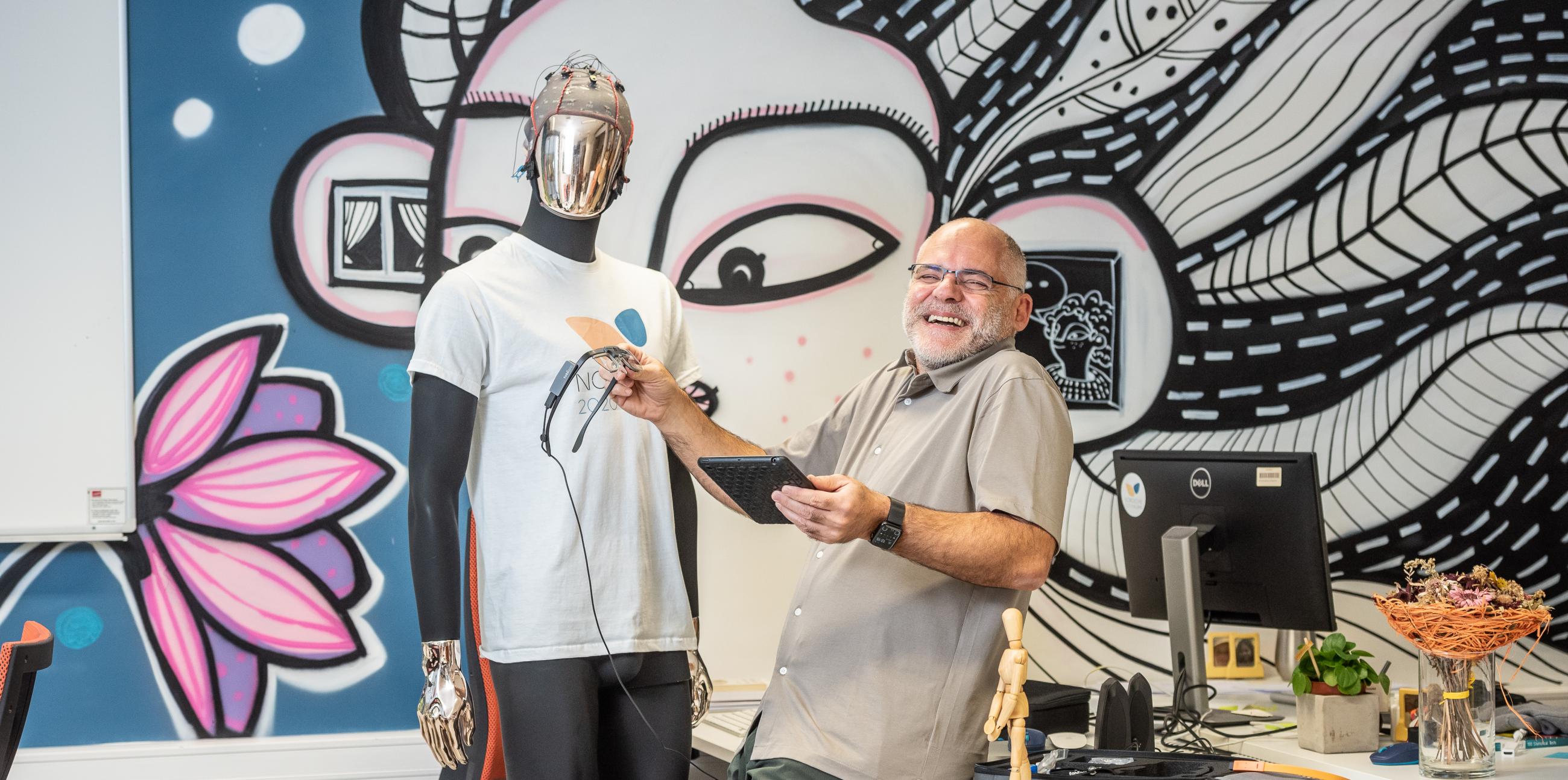TLU calendar 2021: What’s up, professor David Lamas?
TLU 2021 calendar’s focus researcher in May is Professor of Human-Computer Interaction at School of Digital Technologies David Lamas. We will ask him what are his projects right now and how does he spend his free time.

What kind of research and projects are ongoing at the moment? What are the burning questions and topics?
Research-wise we are on a quest to intertwine people and digital technology intimately. We pursue knowledge about how people perceive and interact with information technologies. Our goal is to develop further these technologies to support and augment their individual and collective physical, perceptual and cognitive abilities.
Ongoing work focuses on enabling implicit human-computer interaction by using a range of subtle input and output devices.
On the one hand, we develop and explore technology enabling the use of human physiological data as real-time input. In this case, our current work covers the pipeline extending from data acquisition to creating user-state representations. We aim to render dynamic and precise responses to changes in the user's psychophysiological state.
On the other hand, we develop and explore novel output technologies such as audio and haptic displays. Our current work focuses on establishing the intrinsic, extrinsic and perceptual properties of peripheral vibrotactile displays, which stimulate the skin via subtle vibration.
Other input and output technologies are also being developed and studied, relying on image processing and audio. However, these are still on their early stages. Much more is going on, but these have been my core interests for a while.
What inspires You in life?
My family. And also our effect in the world through what we do, through touching others. I devote a substantial amount of my energy to growing... stuff, for the lack of a better word.
Before joining Tallinn University, I spent ten years in Africa establishing universities. In Cape Verde, I lead the team creating the first university in the country. Personally, this is an experience hard to match if you are into growing stuff. A similar challenge lead me to Mozambique, my home country. Recently I had the chance of joining Peeter Normak, Maarika Miil and others in establishing the first Masters in Computer Science in Afghanistan. We run the first computer-based admission exam in the country with our Afghan colleagues. And just this year, I chaired the third African Conference on Human-Computer Interaction as another step into establishing a pan-African Human-Computer Interaction community.
Besides science – do You have any hobbies or activities that do good for Your physical and mental health?
You’re right, I mostly like what I do so my work is also, to some extent, a hobby.
But yes, I do have some hobbies. I read, I walk or ride a bike whenever possible and I dive. I do love the ocean but never was much of a beach goer. Always like to swim and snorkel but once I discovered scuba-diving, I got addicted. I had it on my wish list for a while, experimented almost by chance a while ago, and never let go after getting my initial certification. It’s a good motivator to keep in good (enough) physical shape does wonders to my mental health, while raising awareness of several issues with a relevant impact in my personal and professional daily life. Systematic planning, careful checks, teamwork, orchestration, psychologically safe environments, these are all crucial when 40 meters underwater depending on a life-support system. This is when you realise how fragile you are alone.
What is Your opinion – where is the science heading to?
That's a huge question. It should lead us to a better world and better versions of ourselves. But I am not sure if this is really the case nowadays, considering how constrained our agendas are by hunting for funding and meeting extrinsic (and sometimes questionable) success criteria.
As demonstrated by the times we live in, science is paramount and deserves ample funding. However, this is usually not the case, and the way incentives are set up end-up distorting research. Don't get me wrong, and it's not like all is lost. It's just that it could be better, much better.